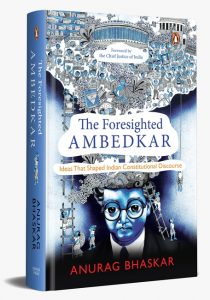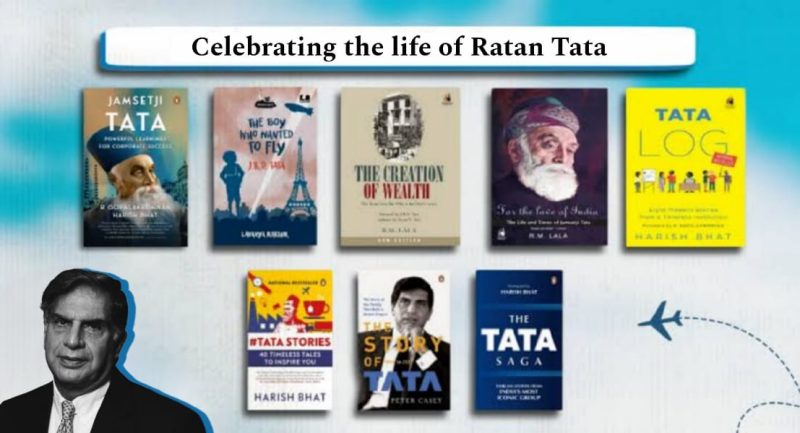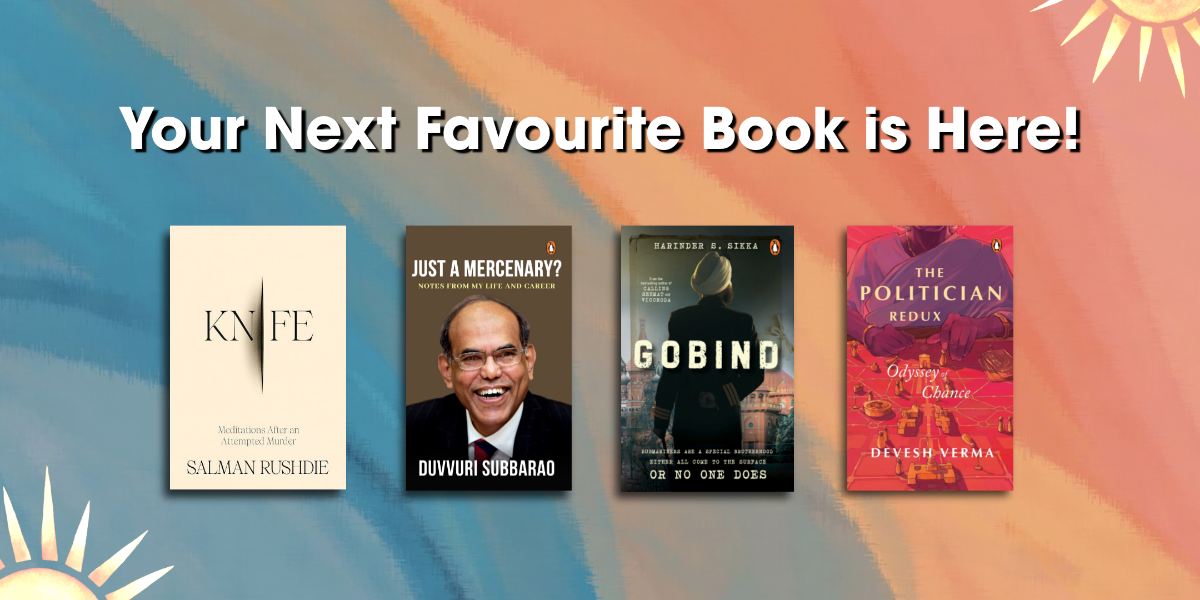
Are you ready to kick-start summer with some fresh reads? Check out this April’s newest releases; promising stories that’ll sweep you off your feet and keep you hooked till the last page. So, grab a chilled, refreshing drink and dive into pure reading bliss.
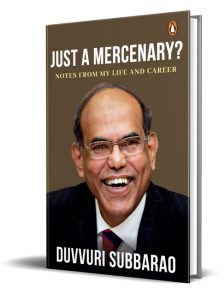
Nearly forty years later, in 2013, as the governor of the Reserve Bank of India in the midst of a fierce exchange rate crisis, Subbarao learnt—once again the hard way—the harsh challenges of emerging economies in an unequal world.
Bookended by these assignments is the remarkable journey of a small-town boy from a modest background to the top echelons of India’s civil service and then on to the helm of the country’s central bank. Subbarao recounts that journey—his hopes and despair, his successes and setbacks, his mistakes and misdeeds, and the lessons he learnt along the way—with rare candour and honesty. The subtext of that story though is his constant soul searching about whether he has given back to society more than he received.
Just a Mercenary? is a warm, engaging and earnest account of an extraordinary career that is bound to inform and inspire young professionals trying to find their way up their career ladders and discover meaning in their journeys.
Born in an impoverished Sikh family in Bihar, Gobind is content to live under the long shadow of poverty. Then, one day, moved by his father’s words, Gobind vows to uplift his life and change his and his family’s fortunes forever.
A soldier at heart, he joins the Indian Navy and becomes a shining star, all set to achieve great success. No one though knows the pain he’s carrying in his heart—that of an unfulfilled promise, an unrequited love.
Soon fate throws him one more challenge—on an assignment to Russia he meets someone who’s not only extraordinarily beautiful, but also reminds him of his lost love. The only catch is, being with her will jeopardize the pledge he made to the navy notwithstanding his heroic rescue of his course mates.
What decision will he make? Who will he choose? Which promise will he break?
A thriller, a love story, a saga of passion and human endurance, Gobind is a page-turner that will keep you spell bound long after you’ve finished reading it.
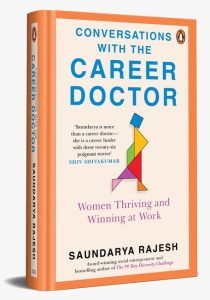
Conversations with the Career Doctor is a ready-reckoner that women can refer to whenever they are confronted with a challenge. It provides a powerful toolkit for every Indian woman professional to lead a strong, secure and successful career.
Saundarya Rajesh, through twenty-six stories, helps women navigate the loaded inequities in the ecosystem that is charged with social, familial and economic biases, and provides solutions to help them stay employed, make money, achieve financial security and keep bounding forward. Accessibly written, well-researched and keenly solution-oriented, this book is the perfect guide for every working woman.
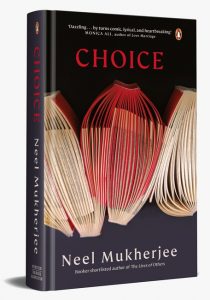
A publisher, who is at war with his industry and himself, embarks on a radical experiment in his own life and the lives of those connected to him; an academic exchanges one story for another after an accident brings a stranger into her life; and a family in rural India have their lives destroyed by a gift. These three ingeniously linked but distinct narratives, each of which has devastating unintended consequences, form a breathtaking exploration of freedom, responsibility, and ethics. What happens when market values replace other notions of value and meaning? How do the choices we make affect our work, our relationships, and our place in the world? Neel Mukherjee’s new novel exposes the myths of individual choice, and confronts our fundamental assumptions about economics, race, appropriation, and the tangled ethics of contemporary life.
Choice is a scathing, compassionate quarrel with the world, a masterful inquiry into how we should live our lives, and how we should tell them.
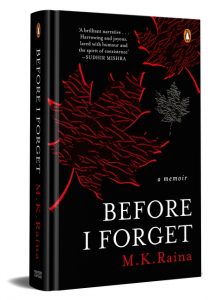
In his sparkling memoir, M.K. Raina documents the many lives he has lived. From sharing the stage with some of the most celebrated actors in India to his journey as a young man witnessing the violence and horrors rampant through the streets of Kashmir, an entire history of northern India is painted with subtle elegance.
Brimming with delightful anecdotes as well as poignant, painful memories of a region that once was, this book is a tour de force.
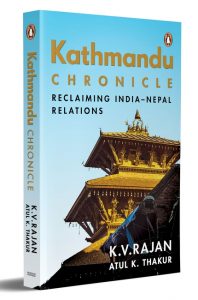
In recent decades, Nepal’s history has been marked by tumultuous events and transformations, and its relations with India by sharp fluctuations. From the Maoist insurgency to the hijacking of IC 814, from the Palace Massacre that wiped out King Birendra and his entire family to the coup by King Gyanendra against democracy, among others, the much-vaunted India–Nepal ‘special relationship’ has repeatedly experienced setbacks, some of them with long-term implications.
What are the real causes of regular anti-Indian eruptions in Nepal, and why is there so much mutual distrust and suspicion despite India’s best intentions? Anecdotal, definitive and deeply researched, Kathmandu Chronicle opens a window to many stories of India–Nepal relation that largely remain untold and therefore unknown till date.
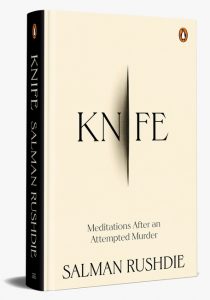
On the morning of August 12, 2022, Salman Rushdie was standing onstage at the Chautauqua Institution, preparing to give a lecture on the importance of keeping writers safe from harm, when a man wearing black clothes and a black mask rushed down the aisle toward him, wielding a knife. His first thought: So it’s you. Here you are.
What followed was a horrific act of violence that shook the literary world and beyond. Now, for the first time, and in unforgettable detail, Rushdie relives the traumatic events of that day and its aftermath, as well as his journey toward physical recovery and the healing that was made possible by the love and support of his wife, Eliza, his family, his army of doctors and physical therapists, and his community of readers worldwide.
Knife is Rushdie at the peak of his powers, writing with urgency, with gravity, with unflinching honesty. It is also a deeply moving reminder of literature’s capacity to make sense of the unthinkable, an intimate and life-affirming meditation on life, loss, love, art—and finding the strength to stand up again.
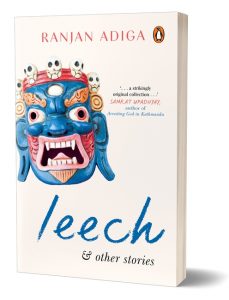
Leech dives into the stories and lives of contemporary Nepalis struggling to belong to new worlds. In Kathmandu, they are caught between tradition and progress. In America, it is no different.
A leech caught inside a man’s nostril reveals fissures of class; a middle-aged Nepali man tries to come to terms with his sexuality in a deeply conventional social system; a professor worries about his immigrant status; a young couple try to bridge the silences in their relationship after moving to America.
Each story explores the distance between home and abroad, desire and reality, allegiance and treachery.
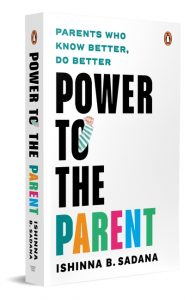
Through Power to the Parent, Dr Ishinna B. Sadana talks to parents to understand their most vulnerable doubts and fears, provides them with a safe space without judgement or preconceived notions, empowers them to deal with their children in different situations and connects with them in a positive way.
Using Dr Ishinna’s practical ways of dealing with kids, many parents have seen transformational results in their relationship with their children. She writes with clarity and simplicity, using real-life examples and case studies so that parents can start applying the lessons they take from the book immediately and see the changes.
Ultimately, Power to the Parent enables parents everywhere not only to raise happy and resilient children, but also to become happier and more confident parents.
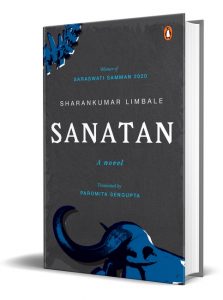
Sanatan is the gut-wrenching story of Bhimnak Mahar and his ilk, who have been subjected to barbaric abuse and inhuman discrimination by the upper castes over centuries. The story begins with the young Bhimnak in pre-Independence India. It then traverses time and geographical boundaries to end with Bhimnak’s grandson. The circular narrative pattern is reflective of the endless cycle of pain that the Mahars are unable to break free from, no matter how hard they try, no matter where they go, no matter if they change their identity and religion. Using myths, the Puranas and historical texts as resources, Sharankumar Limbale rewrites Dalit history in this novel as he attempts to tell the truth, with an intention to build what he calls ‘a new and progressive social order’. Limbale not just brings his reader face to face with uncomfortable realities, he also suggests what could be an alternative social order in the future.
In The Foresighted Ambedkar, Anurag Bhaskar argues that India’s Constitution was drafted not just between 1946 and 1950 but over the course of four decades. Dr Ambedkar was the only person to have been involved at all the stages related to the drafting of the Indian constitutional document since 1919. These stages bear the imprint of his contribution and role.
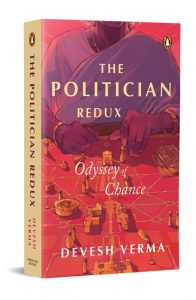
Ram Mohan, an ambitious man in newly independent India, refuses to let his humble origins define him. On a mission to build a political career, he realizes that the only way to live a respectable life is to hold some kind of power.
When the Congress high command vetoes Ram Mohan’s inclusion in the Uttar Pradesh cabinet, Saansad-ji, the state’s chief minister, appoints him as member, UP Public Service Commission, Allahabad. Though non-political, the position has a high social status, and Ram Mohan quickly takes a shine to it. Meanwhile, the JP movement continues to challenge the Congress regime, surging through large parts of India and setting the stage for Indira Gandhi’s downfall.
A sequel to the critically acclaimed The Politician, this new novel, set in the 1970s to 1980s north India, provides a captivating, vivid view of the political battles of that era, and captures the spirit, manners and social conditions of a transformational phase in Indian history.
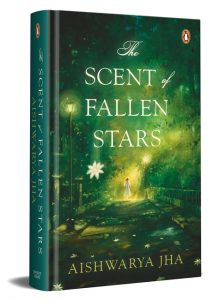
In 1995, thirty-six-year-old Will arrives in newly liberalized India. Smarting from the collapse of his academic dreams, he finds little fulfilment in his well-paying telecommunications job or the social confines of New Delhi’s expat community.
One monsoon night, he encounters young, enigmatic Leela, who blazes into his world and unleashes a storm of passion and devastation that will alter it forever.
Twenty-three years later, Aria lands in the city on a quest to find the mother whom she believed to be dead. Estranged from her convalescing father, her journey leads her to unravel the mysteries of her parents’ story and her mother’s life—from her childhood in an orphanage to a doomed love affair and finally, the remote shores of asceticism.
As she searches for answers and a sense of belonging, Aria stumbles upon lost worlds, haunting memories, and the explosive secret that torpedoed her father’s life, the reverberations of which will be cataclysmic for her own.
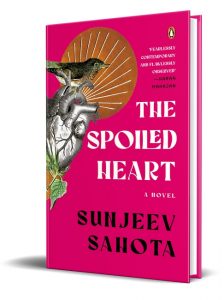
A magnificent and multi-layered account of one man’s inexorable fall, The Spoiled Heart is an explosively contemporary story of secrets and assumptions whose consequences could never have been imagined. It is a stunning achievement from one of our very finest novelists.
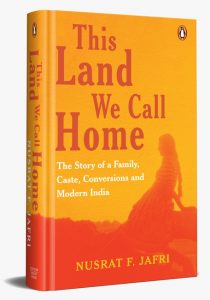
In 1871, the British enacted the Criminal Tribes Act in India, branding numerous tribes and caste groups as criminals. In This Land We Call Home, Nusrat F. Jafri traces the roots of her nomadic forebears, who belonged to one such ‘criminal’ tribe, the Bhantus from Rajasthan, through the lens of caste and religious conversions over the last century.
This Land We Call Home affecting memoir explores religious and multicultural identities and delves into the profound concepts of nation-building and belonging. Nusrat’s family’s conversion to Christianity as a response to Brahmanical gatekeeping highlights their struggle for acceptance.








